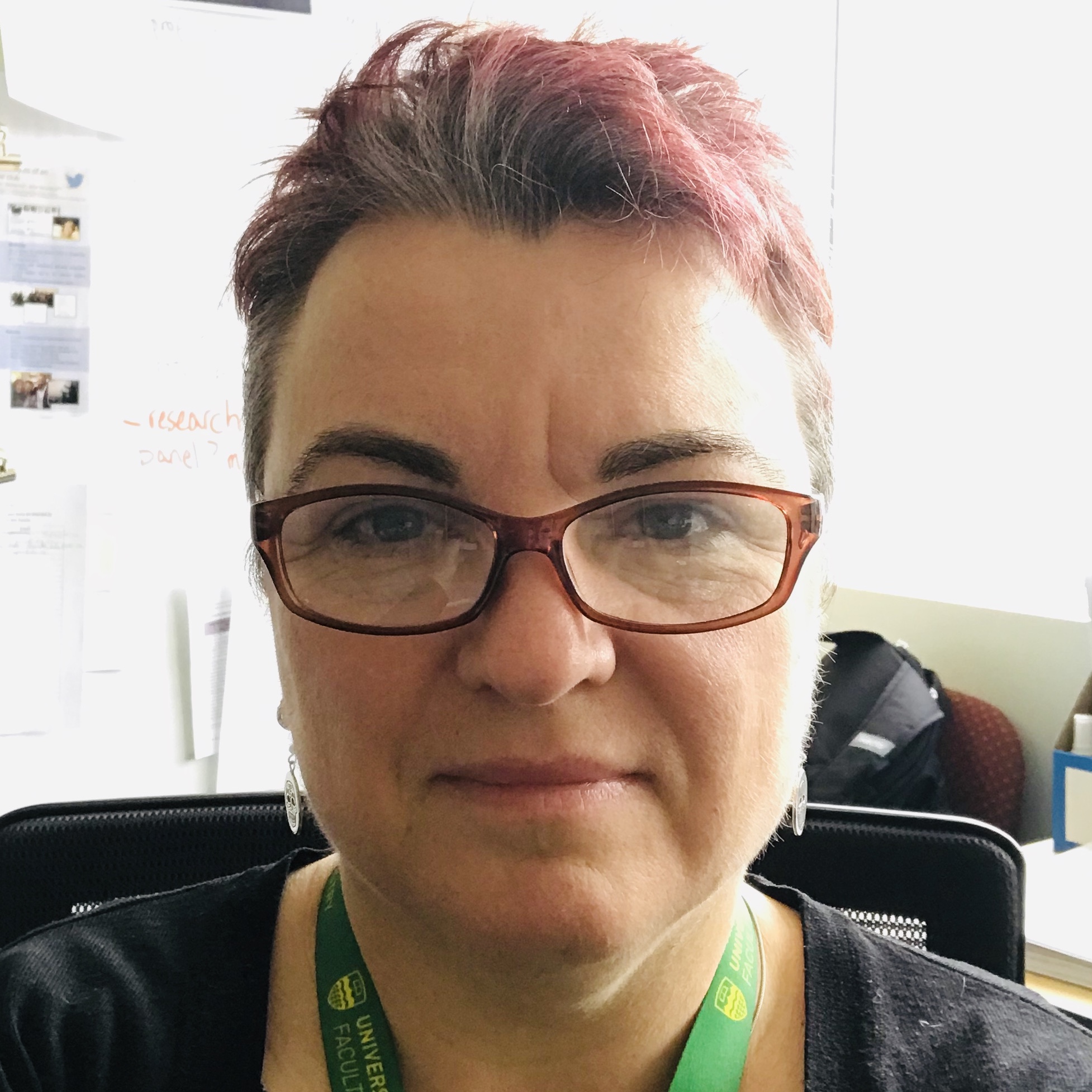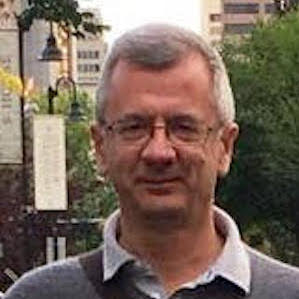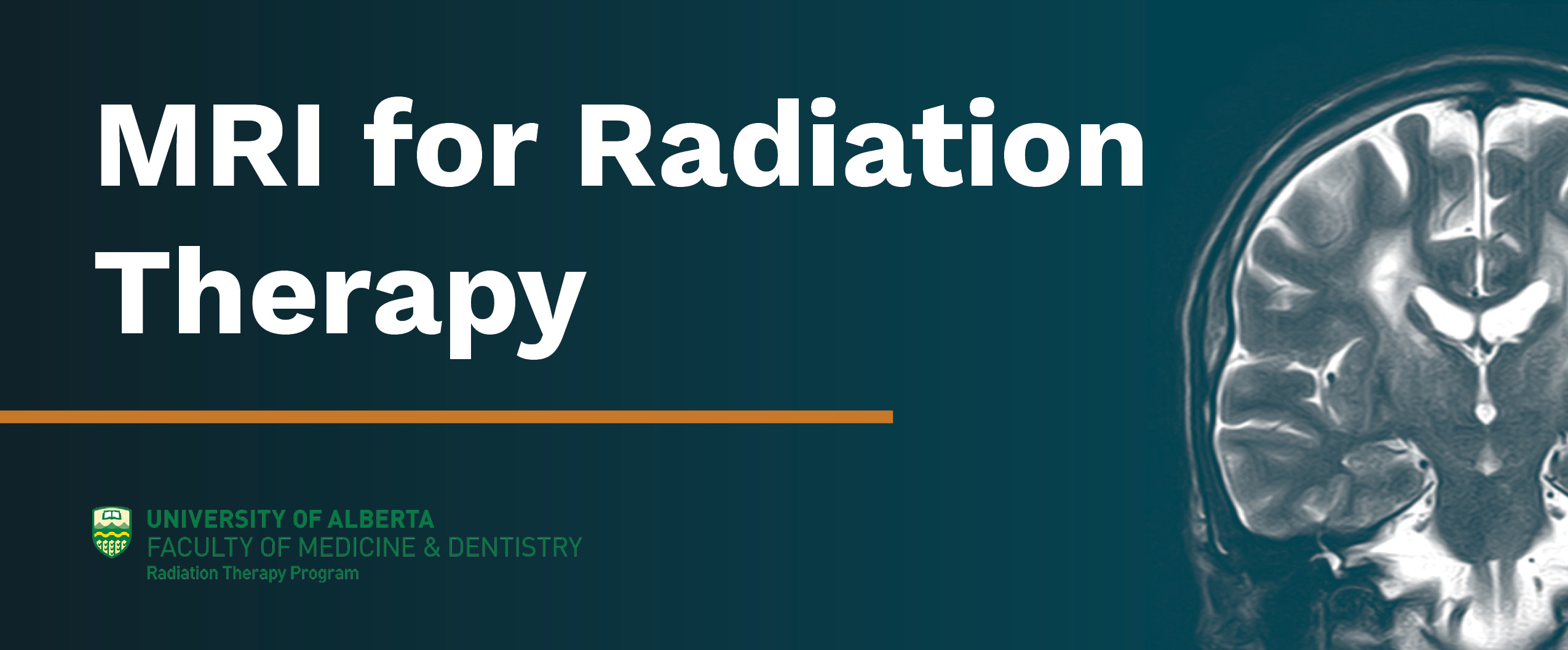Take MRI for Radiation Therapy Online
This introductory 8-week course offered by the University of Alberta’s Radiation Therapy Program will provide an overview of the landscape of MRI in RT.
Earn CAMRT Credits
By the end of the course, you will earn a certificate of completion and Canadian Association of Medical Radiation Technologists Category A credits.
Visit the CAMRT site
Contact
Questions about MRI for Radiation Therapy?
Email radth@ualberta.ca if you have questions about this course.
Send us an Email
Course Aim
Learners will deepen their knowledge of the physical and technical features of the use of MRI and gain an understanding of its implementation in radiation therapy clinical practice. The content is suitable for practicing radiation therapists with an interest in this area of evolving practice.
Key Facts
Duration: 8 weeks
Next Course start date: October 2, 2023
Award: Certificate of completion and 22.5 Canadian Association of Medical Radiation Technologists Category A credits
Language: English
Course fees: $790 CAD
Course Structure
This course is taught online using the University of Alberta’s virtual learning environment (eClass). A cohort model is used with a variety of teaching and learning methods, including videos, readings, podcasts and activities. Each online module is 1 week. All resources and readings will be supplied within each online module.
Online Modules
Course Instructors

Dr. Amanda Bolderston
Amanda is a radiation therapist, researcher and educator in the Radiation Therapy program, Faculty of Medicine and Dentistry, at the University of Alberta.
Amanda has worked in the Netherlands, the United Kingdom, Ontario and British Columbia in a number of clinical, education and leadership roles. Over the last three years at the University of Alberta she has taught various oncology, health policy, research and interprofessional courses. She is also the Editor in Chief of the Journal of Medical Imaging and Radiation Sciences (JMIRS) where they are seeing increasing submissions in the area of MRI-RT.

Dr. Jonathan Sharp
Jonathan is an Associate Professor at the University of Alberta in the medical physics division of the Dept. of Oncology.
His education is from the universities of Cambridge, Aberdeen and Nottingham.
His research in MRI technology and MR physics has been carried out mainly in Canada, earlier at the National Research Council of Canada in Winnipeg and Calgary, and now here at the U of A in Edmonton.
Jonathan currently teaches radiation physics and MRI in the Radiation Therapy degree program.

Dr. Boguslaw Tomanek
Boguslaw is an MRI physicist. He worked for the National Research Council of Canada, as a head of the MR Technology Group for almost 20 years in Winnipeg and Calgary.
In 2014 Boguslaw joined University of Alberta and since then he has been working on various MRI systems and applications, including the MRI-Linac system. He also teaches Radiation Protection and Medical Instruments within the Radiation Therapy program at the University of Alberta.

Kim Rans
Kim is an academic faculty member at the University of Alberta. He has 25 years of experience in radiation therapy and medical dosimetry. He's held roles as a staff radiation therapist, medical dosimetrist, consultant applications specialist, and treatment preparation manager. He has served in all of the officer positions, including president, of the medical dosimetrist certification board (MDCB) from 2004-2010.
Kim currently teaches health policy, medical dosimetry, and clinical simulation in the Radiation Therapy degree program in Edmonton, Alberta. His areas of research interest are the use of Artificial Intelligence (AI) in radiation therapy and oncology global health initiatives. Kim has volunteered with Rad-aid International and have travelled to Kenya twice to aid in training and mentoring staff at the Kenyatta National hospital in Nairobi.
